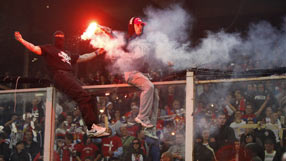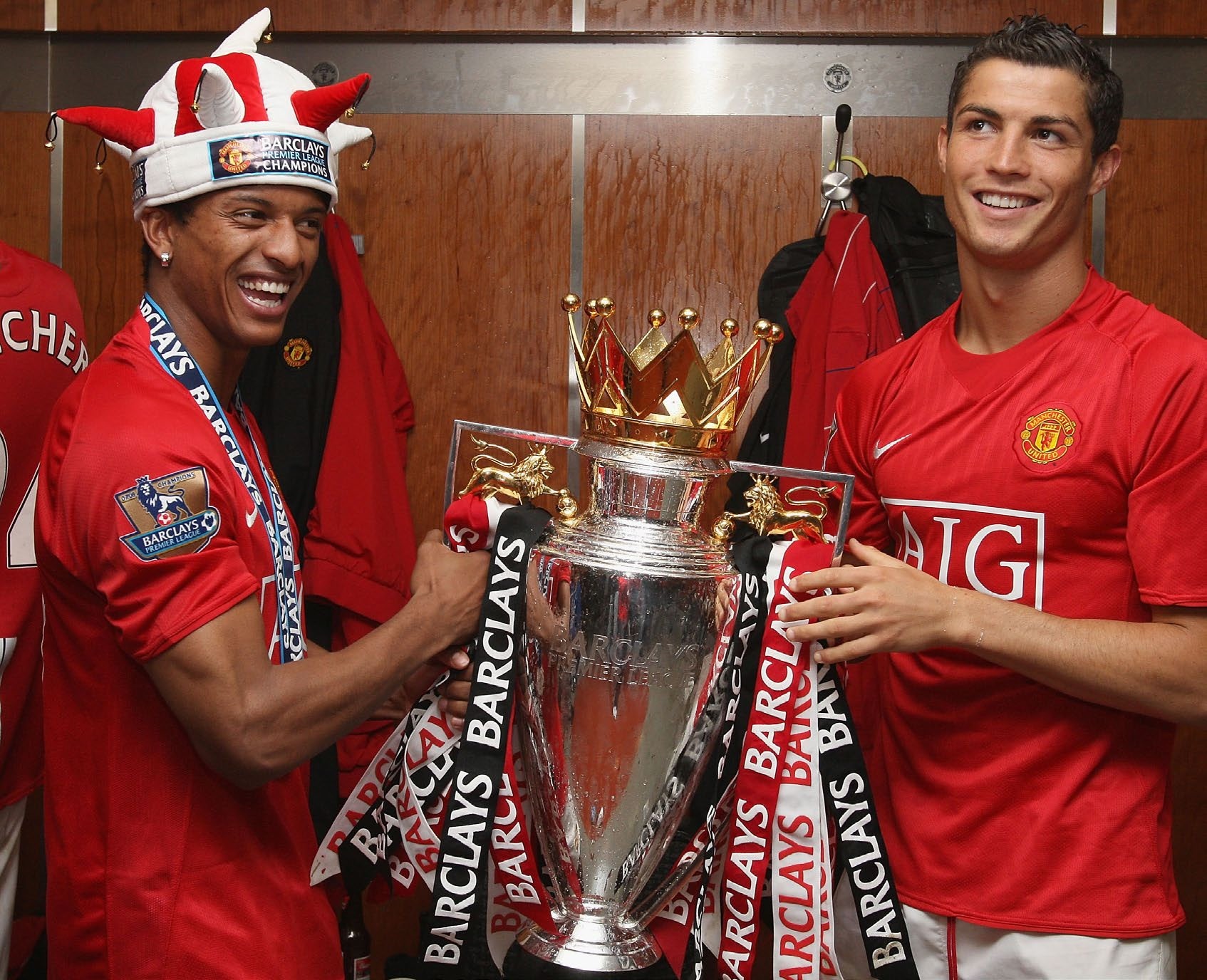
The best features, fun and footballing quizzes, straight to your inbox every week.
You are now subscribed
Your newsletter sign-up was successful
Want to add more newsletters?

Five times a week
FourFourTwo Daily
Fantastic football content straight to your inbox! From the latest transfer news, quizzes, videos, features and interviews with the biggest names in the game, plus lots more.

Once a week
...And it’s LIVE!
Sign up to our FREE live football newsletter, tracking all of the biggest games available to watch on the device of your choice. Never miss a kick-off!
Join the club
Get full access to premium articles, exclusive features and a growing list of member rewards.
Milosevic, Serbia's most capped player with 102 appearances, expects Serbia to be severely punished after the fans attacked their goalkeeper, clashed with riot police and threw flares, but admitted the incident was a timebomb waiting to explode.
"This is one of the darkest days in the history of Serbian football and the repercussions are likely to be so drastic that the Euro 2012 qualifying campaign is as good as over for us," he told Belgrade's B92 television.
"The government has been completely disinterested in sport and its problems over the last 20 years, hence Serbia is now paying a heavy price for the failure to tackle hooliganism swiftly and decisively," he added.
"The problem, of course, goes beyond football and these young men wreaking havoc wherever they go are the consequence, not the root of the problem."
Milosevic's words echoed growing public opinion that Serbia's football violence was rooted in social issues.
Mass unemployment among Serbia's youth, going hand-in-hand with the political strife that tore apart the former Yugoslavia and the economic hardship which followed, is seen by some political analysts as the key issue.
ENGLISH MODEL
The best features, fun and footballing quizzes, straight to your inbox every week.
Most die-hard fans in Serbia are teenagers who grew up in the 1990s, when Yugoslavia's bloody break-up and international isolation hit the economy hard.
The accumulated frustration invariably came to the fore at Belgrade derbies between bitter foes Red Star and Partizan, but a visa-free travel agreement with most EU countries means that Serbian fans can now export their violence easily.
The problem would remain unless the government took measures to crush hooliganism and Milosevic sees measures taken by authorities in England, where he played for Aston Villa in the 1990s, in the last few decades as the perfect model.
"The English have dealt with this problem efficiently and ruthlessly by prescribing lengthy prison terms for the offenders and we have to follow suit," he said.
"I know we are not the most organised country in the world but the government has to do more than it has done over the last 20 years or things will only get worse."
While Italian media brought headlines such as "Beasts" after they said 17 Serbian fans were arrested in Genoa after the violence, Belgrade's daily newspapers speculated on Wednesday that Serbia could be kicked out of the competition.
"They will certainly lose the match, get a hefty fine and play with a crowd ban, perhaps the only thing that might save Serbia from being disqualified is the fact that Italy were the hosts," wrote the daily Press.
The intensity of the violence shocked Italy goalkeeper Emiliano Viviano, who was almost hit by one of the flares which forced the match to be abandoned after only six minutes.
"It's a shame that the game should end like this and the Serbian players were upset too, their captain Dejan Stankovic was crying," he told Italian media.
"It would not have been nice to get hit on the head."
 Join The Club
Join The Club










